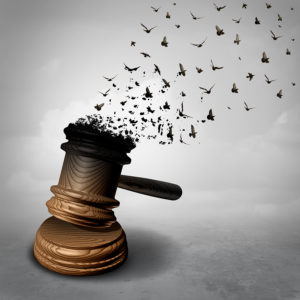
You’d be tried in federal court by prosecutors who typically have access to many more resources for investigations than state prosecutors, and you could end up in federal prison if you are convicted.
Being charged with a federal crime is very serious because of the difficulty of fighting charges and the harsh penalties that could be imposed upon you if you are convicted. If you are accused of civil disorders, you need to ensure that you understand the nature of the offense that you have been charged with and that you know what a prosecutor must prove in order for you to be found guilty of the offense. You also need to be strategic in determining how you will respond to the charges that you are facing, so you can reduce the likelihood of conviction or limit the possible penalties that you will end up facing.
LV Criminal Defense can help you. Our federal criminal defense attorneys provide representation to clients in Arizona, Utah, California, Nevada, and surrounding states who have been accused of federal offenses. We understand the laws related to civil disorders inside and ou,t and we can provide the assistance you need to cast doubt on the accusations and get acquitted. We can also provide help negotiating a plea agreement that limits penalties or even results in you being charged with a less serious crime.
You need to make the right choices from day one about how you respond to a federal investigation into your conduct and what you do when faced with federal charges. LV Criminal Defense can offer you help and support in fighting serious accusations, so give us a call as soon as you come under investigation or are arrested for crimes related to civil disorders.
18 U.S. Code Chapter 12 is the part of the federal penal code that deals with civil disorders. There are three statutes within this chapter. The first, 18 U.S. Code section 231, deals with the types of civil disorders that can result in federal charges. The second, 18 U.S. Code section 231, defines key words that are used within Chapter 12, so it is clear exactly what specific words mean that help to define criminal conduct. The third, 18 U.S. Code section 233, explains the rules for when federal laws on civil disorders preempt state laws addressing similar types of criminal misconduct.
Nick Wooldridge has a long track record of representing clients accused of serious federal and state crimes in Nevada.
Under 18 U.S. Code section 231, there are different types of behaviors that are considered civil disorders, and that can result in criminal charges. The prohibited behavior includes:
A violation of these laws and the commission of civil disorders can result in fines as well as imprisonment for a period of up to five years. However, the law makes clear that it does not apply to law enforcement officers who engage in conduct that is a part of their official duties.
18 U.S. Code section 232, the definitions statute, explains exactly what civil disorder means for purposes of this statute. Civil disorder includes any public disturbance that involves acts of violence by a group of three or more people that causes immediate danger or that results in any person or property suffering injury or damage. In other words, rioting could be a form of civil disorder if there are at least three people and there is a risk to the safety of persons or to property.
There are strict rules against civil disorder because of the strong public policy goal of maintaining peace and preventing people from engaging in dangerous criminal conduct that causes a disturbance. If you are accused of engaging in prohibited acts, such as promoting weapons to be used in instances of civil disorder, you could face a lengthy jail sentence and a large fine, so it is important to respond assertively.
LV Criminal Defense can help you to fight accusations related to civil disorder by working closely with you to decide how best to respond to charges.
When I initially met with Mr. Wooldridge, he took the opportunity to sit and go over my problem with me. He described details in my case which he found disturbing and explained why he I should have him on my side.
Whether your best course of action involves negotiating a plea agreement, trying to get charges dropped, or fighting for an acquittal, our compassionate and knowledgeable legal team will provide the support and advocacy you need as you navigate the criminal justice system. Give us a call today to find out more.